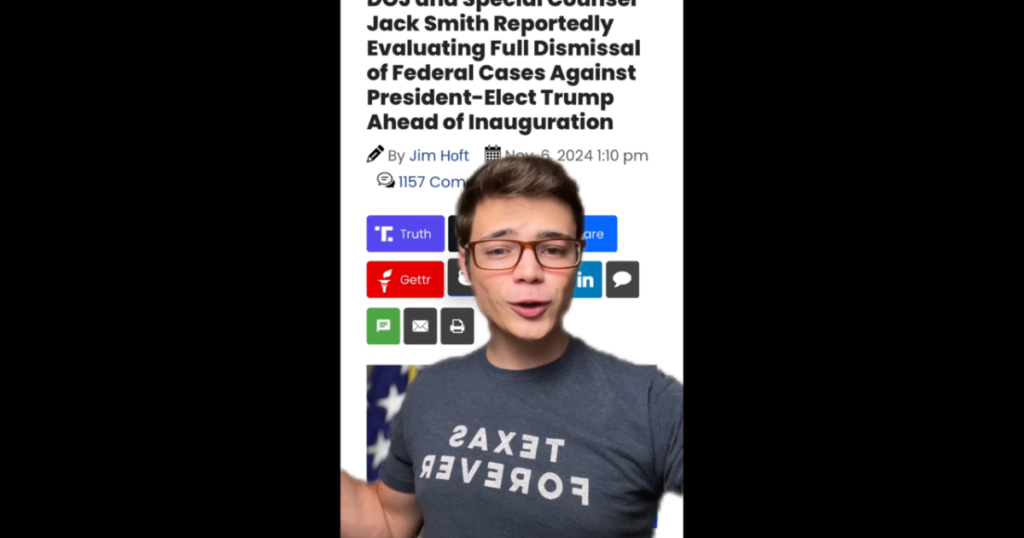The landscape surrounding the Department of Justice (DOJ) and the ongoing investigations involving former President Donald Trump appears to be shifting dramatically as he prepares to assume office following the recent election. Reports from The Gateway Pundit indicate that Special Counsel Jack Smith and other high-ranking DOJ officials are reevaluating their strategies concerning the Jan. 6 insurrection and classified documents cases. As the reality sets in that these cases may not proceed to trial anytime soon, particularly with Trump back in power, there seems to be internal deliberations within the DOJ about how best to sideline these controversial legal pursuits. Many observers argue that political motivations have heavily influenced the initiation and persistence of these cases against Trump, raising alarms about the integrity of the judicial process.
With the prospect of legal challenges escalating to the Supreme Court, it appears the DOJ has recognized the fragility of its cases against Trump. Critics argue that much of the evidence presented in these cases has been sparingly substantiated, leading to skepticism regarding their viability in a formal court setting. Former Attorney General Bill Barr has voiced strong support for Trump, suggesting that the DOJ should dismiss the charges against him. Barr emphasizes that the voters have made their choice clear, electing Trump with full awareness of any alleged legal complications looming over him. His call for dismissal highlights a growing sentiment among certain political factions that the legal pursuits against the former president could be seen as an affront to the democratic process.
The assertion that the DOJ and associated investigations represent a form of political retribution resonates with many of Trump’s supporters, who interpret these actions as a manifestation of the “deep state” attempting to undermine a legitimately elected president. This belief is compounded by perceptions among some that the motivation behind these investigations is less about justice and more about controlling political outcomes. Supporters argue that attempts to discredit and delegitimize Trump’s presidency are part of a broader strategy to influence public perception and sway electoral outcomes in favor of opposing political agendas.
The backdrop of public sentiment also plays a critical role in shaping the narrative around these legal challenges. Despite the investigations and allegations, Trump has maintained a significant level of support among his voter base. Many Americans view the actions of the DOJ not just as legal proceedings but as an orchestrated effort to diminish the influence of certain political ideologies. This belief reinforces the notion that the legal battleground is also a political one, where the outcomes could impact the future of the Republican Party and its political landscape.
As the DOJ grapples with the implications of continuing its investigations against Trump, there is an increasing chorus calling for respect for the democratic process. Barr’s position emphasizes that the decision rendered by the voters should be honored by institutions like the DOJ, averting any potential misuse of legal power against elected officials. His stance can be seen as an appeal for the preservation of democratic values amidst rising tensions between different political factions in the country. This evolving scenario serves as a reminder of the delicate balance between the rule of law and the political dynamics that frequently accompany high-stakes elections.
In conclusion, the trajectory of the DOJ’s investigation into Trump reflects wider social and political currents. The complexity of these legal challenges underscores a broader discussion about the role of the judiciary in political affairs, highlighting the potential consequences of perceived partisanship in legal proceedings. As this situation unfolds, it remains to be seen how both legal and political arenas will navigate the fallout from these investigations and what it will mean for the future of American democracy and governance. The current climate demonstrates the interplay between law and politics and the pervasive belief among many that justice can sometimes become eclipsed by partisan interests.

